Masonry Mortar Introduction and Applications
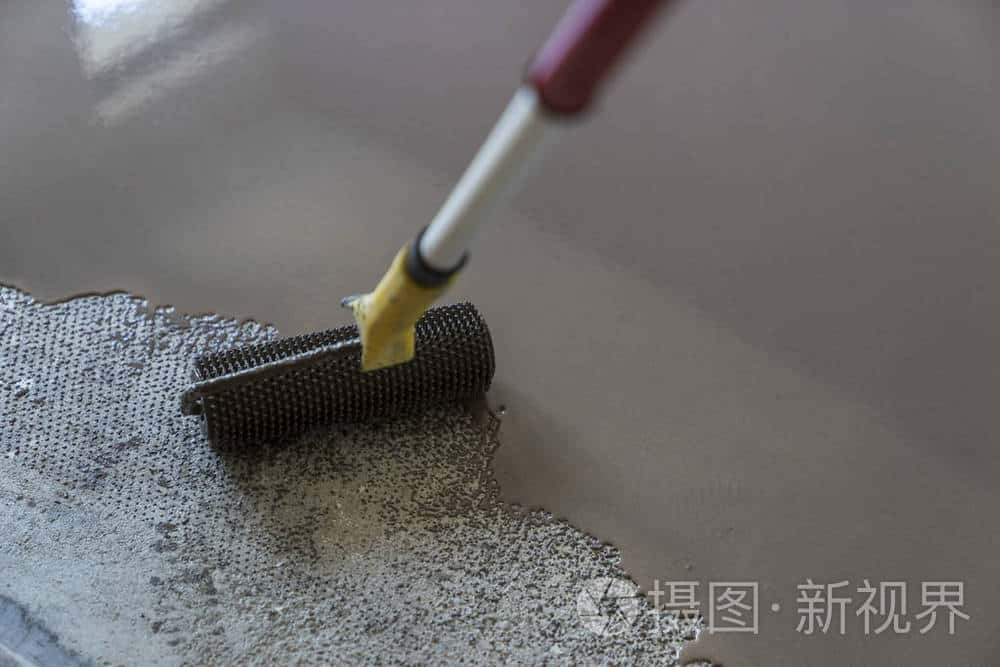
What is the masonry mortar?
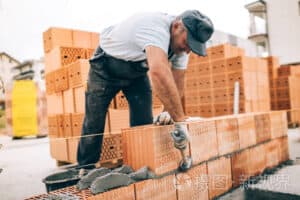
In terms of physical properties, masonry mortar includes viscosity, fluidity, hardening time, strength, etc. Its fluidity affects its performance during the masonry process, while its hardening time and strength directly affect its service life.
Mortar for masonry is typically composed of cement, lime, sand, water, and other ingredients. As cementitious materials, cement and lime react with sand when mixed with water to form hardened substances, which act to bond the two; additives can be used to improve mortar’s technological performance and strength and other characteristics.
Masonry mortar has good bonding performance, good durability and load-bearing capacity, relatively simple preparation and construction; it can be adjusted and optimized according to different building needs, and can withstand the strength of the building itself and the external environment, ensuring the building is stable and safe.
Where can we use masonry mortar?
Masonry mortar is a commonly used building material, usually used to build walls, install tiles, repair concrete surfaces, install waterproofing, etc.
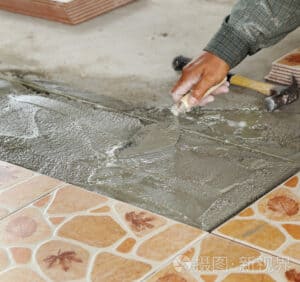
Masonry Walls: Masonry mortar can be used to construct walls by gluing bricks or stones together.
Tile installation: Masonry mortar can be used to attach tiles to floors, walls or other surfaces that require tile installation.
Repair concrete surfaces: Masonry mortar is used for repairing concrete surfaces and filling defects, such as cracks and holes.
Apply a waterproof layer: Masonry mortar can be used to apply the waterproof layer over the roof or walls of a building in order to prevent water erosion.
How to use masonry mortar?
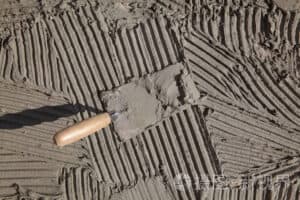
The following steps are usually followed when using masonry mortar:
A bagged prefabricated dry-mixed mortar and cement are evenly mixed together to make masonry mortar according to the design requirements and material ratio.
Prepare the working surface for masonry by ensuring that it is flat, dry, and free of dust.
Using a shovel or scraper, apply masonry mortar to the surface to be bonded.
Building units that must be bonded together according to the design requirements (such as bricks, stones, tiles, etc.) are referred to as bonding building units.
Ensure that the surface is flat and smooth by finishing it with a shovel or scraper.
The masonry mortar should be allowed to dry and cure in the air for a period of time in order to ensure its stability and strength.
The masonry mortar is a commonly used building material, being used for various bonding and repairing operations on buildings. It ensures the stability and safety of the structures made from masonry.
How Masonry Mortar is produced?
The dry-mix masonry mortar is a prefabricated building material that can be used directly for masonry, bonding bricks or stones. The production of prefabricated dry-mixed masonry mortar involves storing screened and dried gypsum, lime, fine sand (humidity at least below 1%), cement, and some additives in a closed storage tank. Following the formula ratio, the material is transported for 1-2 minutes through a screw conveyor and bucket elevator to the pre-mixing bin and mixing equipment for smooth texture. To ensure the quality of the ingredients and the precision of production, a fully automatic metering system and a touch-type PLC intelligent control system are used;
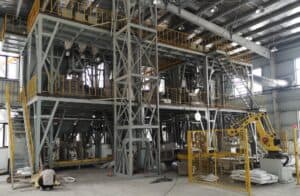
The uniformly stirred mortar is packed into bags by an automatic packing machine with a micro-control system, and the packing weight can be adjusted from 10 kg to 50 kg per bag based on the needs of the user. Upon completion of packaging, product names, production dates, batch numbers, and other information will be placed on the packaging. After the finished products are palletized by intelligent palletizers, they are stored in suitable warehouses or storage areas.
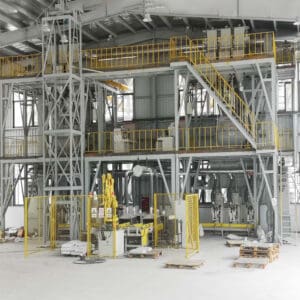
Different manufacturers and products may have different specific production processes. Moreover, the relevant safety operations specifications should be strictly followed during the production process, and quality control and inspection should be performed. Additionally, the air quality in the production and storage environments should be maintained to ensure that dry-mixed masonry mortars meet the requirements of the regulations.
Features of Masonry Mortar:
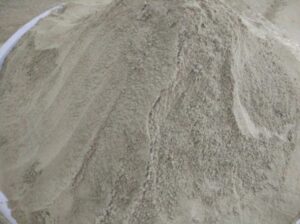
A major advantage of this mortar over traditional mortar is that it does not require the mixing of cement and yellow sand on site, and can be used directly by adding water;
There is a stable performance of the product, as well as better strength and other performance indicators than traditional mortar;
The construction is simple, the mortar does not bleed, the workability is good, and the mortar joints are complete;
The product is mainly transported and stored in bulk, which reduces construction pollution and material waste.
Having A Project! We have you covered!
"Take the first step towards a successful dry mortar plant project and contact us now for expert guidance and support!"